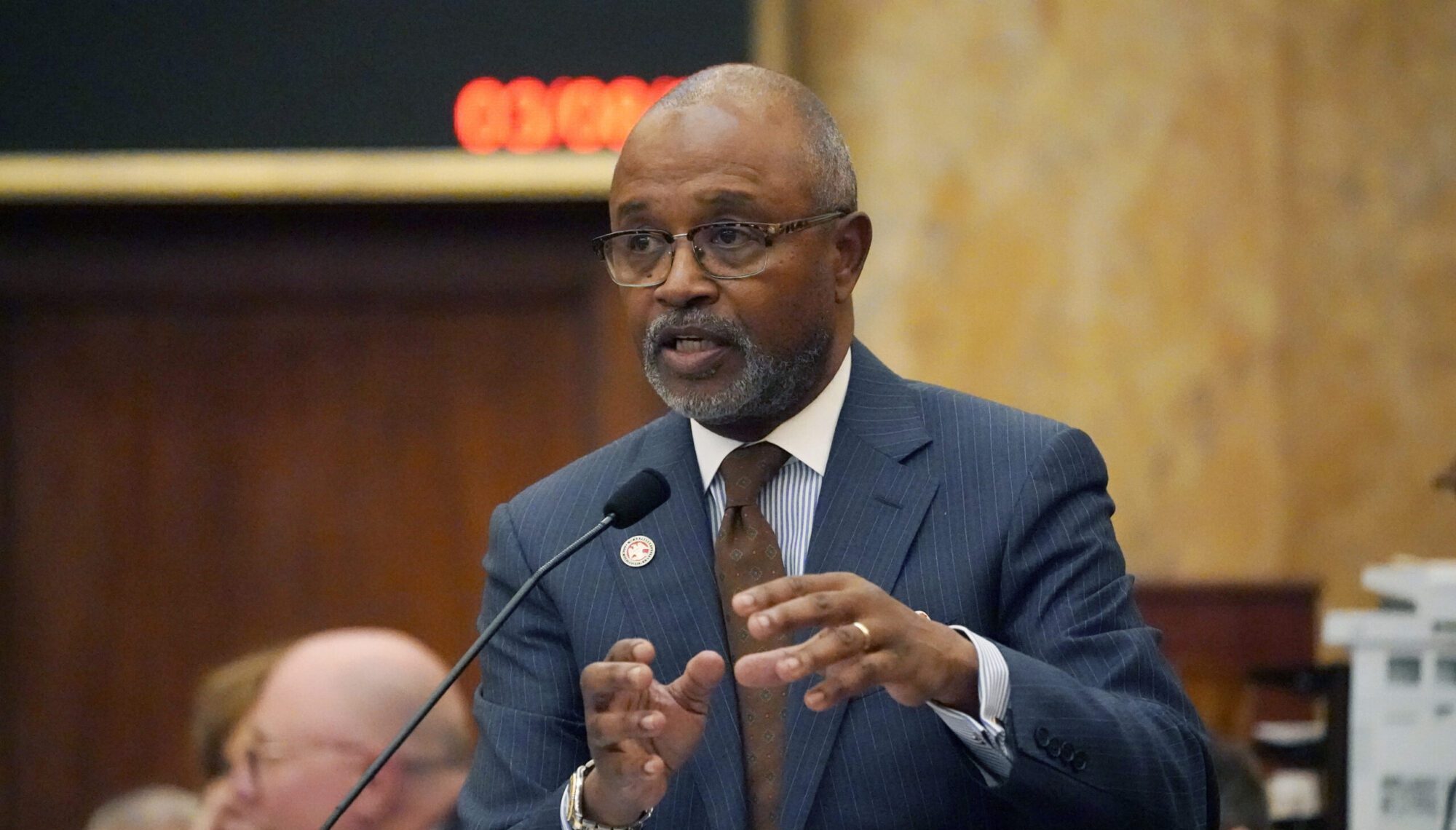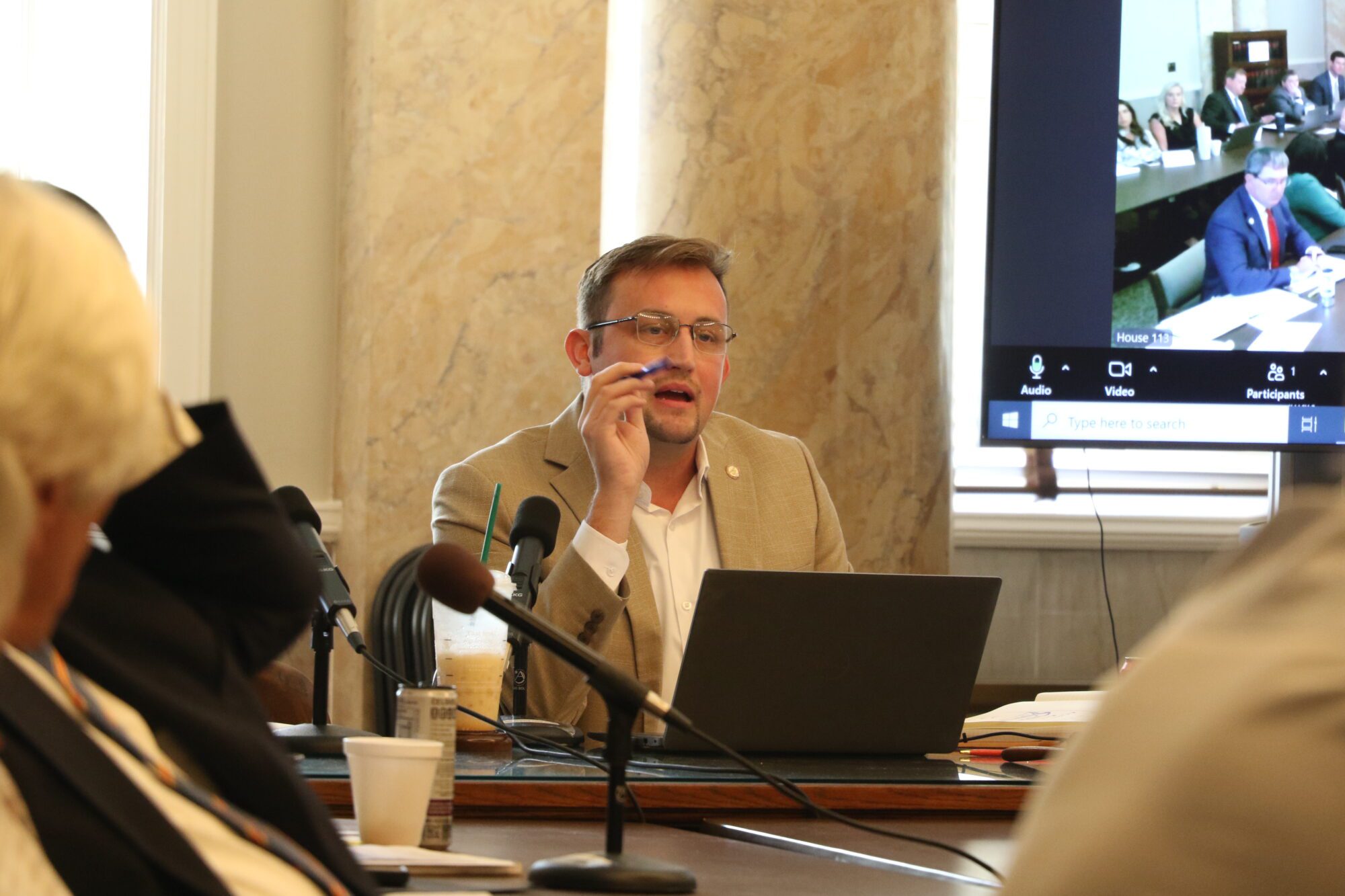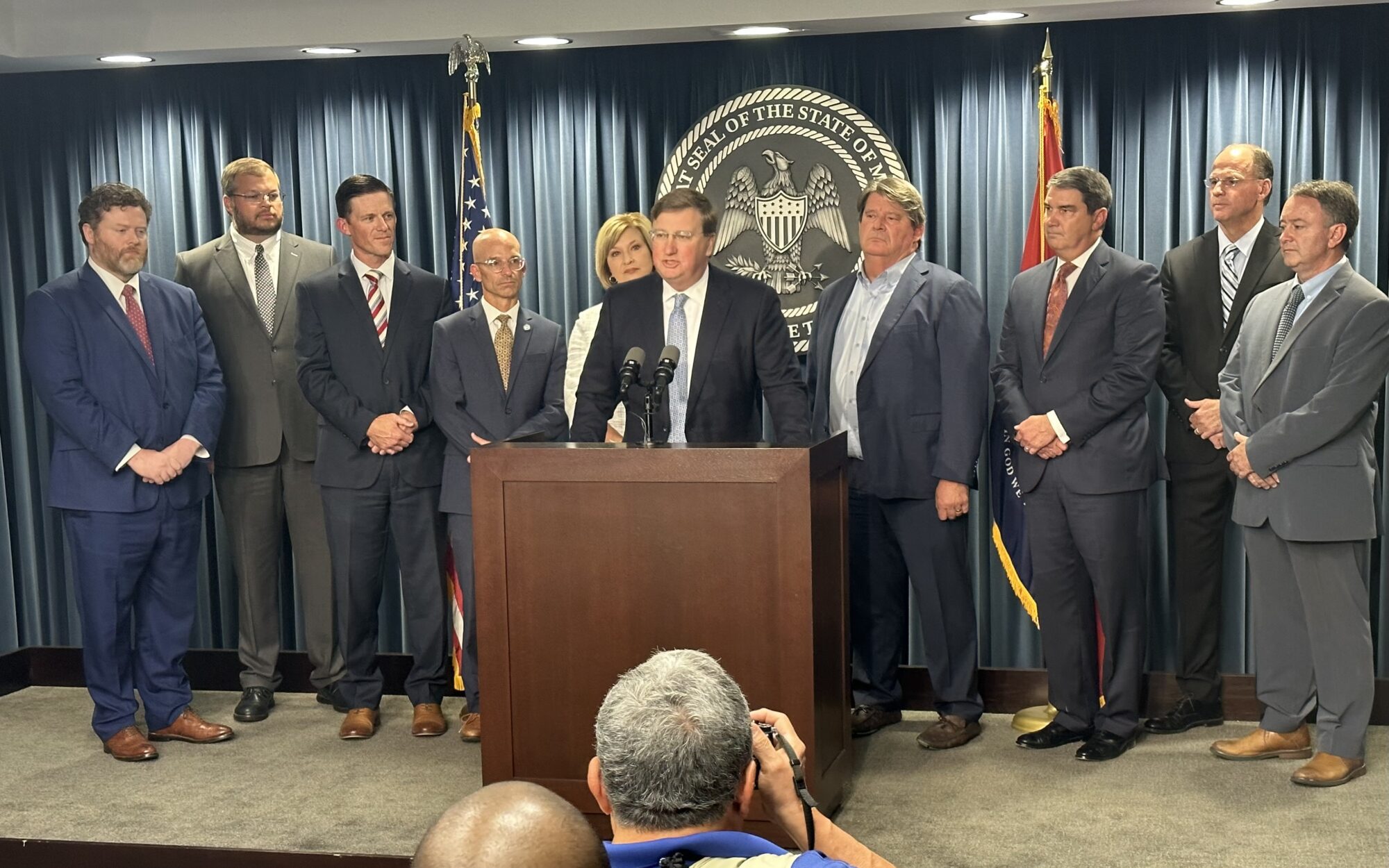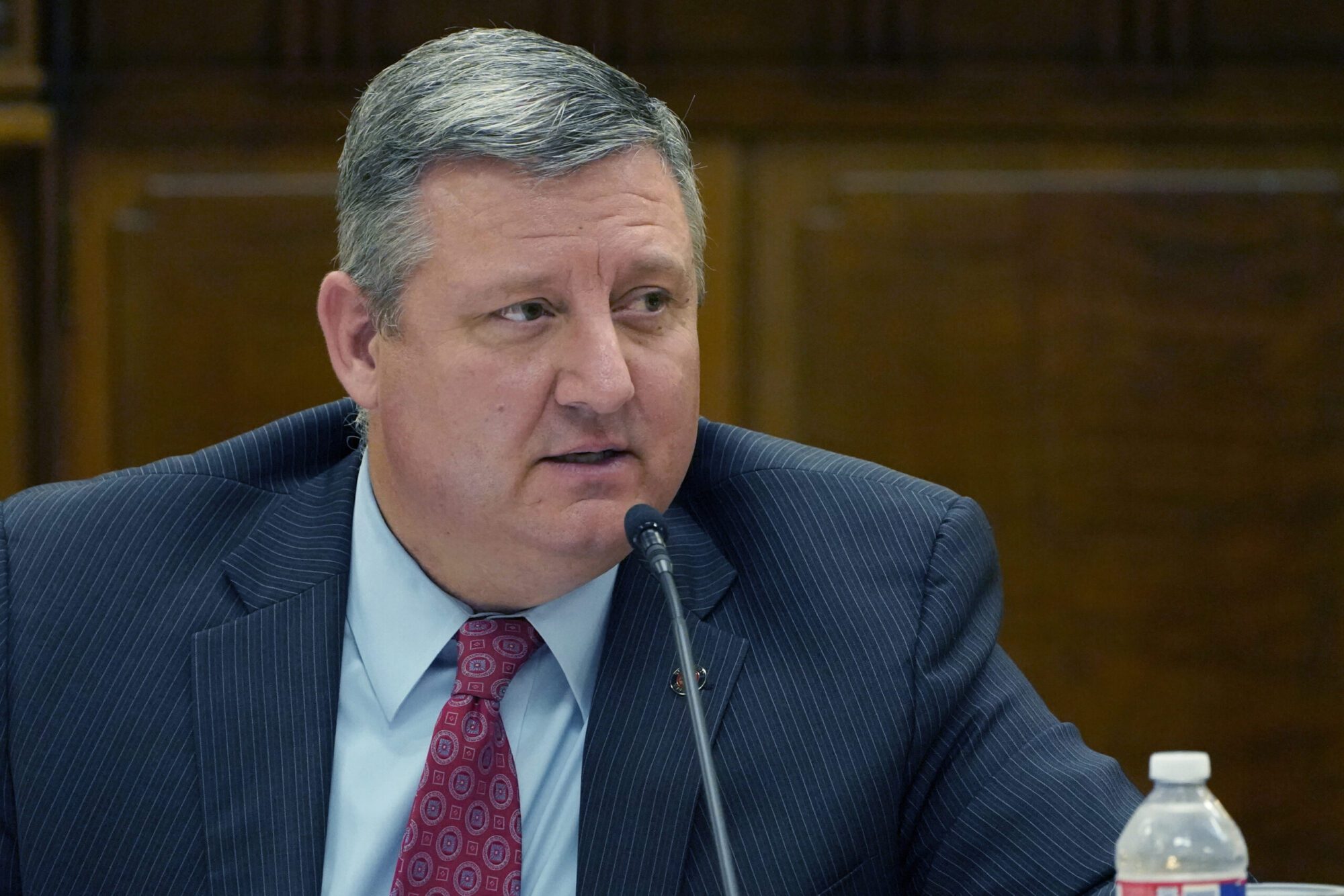
Rep. Robert Johnson, D-Natchez, speaks about his amendment to proposed ballot initiative legislation, during floor debate, Wednesday, March 8, 2023, at the Mississippi Capitol in Jackson. (AP Photo/Rogelio V. Solis - Copyright 2023 The Associated Press. All rights reserved.)
- A majority of House Democrats backed the INSPIRE Act to increase education funding. Now, House Minority Leader Robert Johnson is raising alarm.
Despite the fact that a majority of his caucus has backed the INSPIRE Act, House Democratic Leader Robert Johnson joined Senate Democratic Leader Derrick Simmons on Wednesday in opposing the legislation. Their argument: they don’t like that conservatives also support the legislation.
The INSPIRE Act is the House’s legislation that would provide for a new K-12 education funding formula to replace the Mississippi Adequate Education Program, or MAEP. It is estimated that the House plan could increase overall education funding by over $250 million annually, with some estimates coming in higher.
A key component of the legislation is the creation of weights that increase funding for specific categories of students, such as those with special needs, English language learners, and low-income students. MAEP currently offers a weight for students receiving free or reduced lunches of 5 percent. Under INSPIRE, low-income students would receive 30 percent more than the base student allotment.
The Mississippi Senate has twice rejected the plan, most recently this week when Senate Education Chairman Dennis DeBar (R) declined to concur or invite conference on INSPIRE language inserted by the House in the Senate’s own education funding formula bill. DeBar cited what he believed to be inconsistent information on the impact of the House proposal and that it was not shared with the Senate prior to the start of the session. The Senate had separately proposed more modest revisions to MAEP, which also died when Senator DeBar elected not to concur or invite conference. Apart from the funding formula bills, the Senate has proposed $200 million in additional education funding.
Republican desire to change the existing funding structure is not new. Leaders have long complained about MAEP, a funding formula devised in the late 1990s when state Democrats maintained control of the Legislature. Following the defeat of Initiative 42 in 2015, then-Speaker Philip Gunn (R) and then-Lt. Governor Tate Reeves (R) worked with funding formula consultants EdBuild to create a new student-centered funding formula. The measure passed the Mississippi House, but then ran into trouble in the Mississippi Senate in 2018, where it ultimately failed.
Organizations like “The Parents’ Campaign” have fought efforts to revise the way education funding is allocated between students in Mississippi, instead focusing on demanding “full funding” of MAEP.
Renewed efforts to pass systemic funding formula reforms have been spearheaded by new House Speaker Jason White (R). White has also brought dogged persistence to the fight. Three attempts have now been made in the House to send the INSPIRE Act to the Senate for approval or concurrence this session.
The Speaker has maintained consistent support from his Republican caucus, but Democratic support for the INSPIRE concept has also grown.
In the first attempt to pass the plan, the original INSPIRE Act in HB 1453, 14 Democrats supported the bill in the House while 13 went on record to oppose it. Another 14 voted present.
On the second attempt, an amendment made to SB 2332 to insert the INSPIRE Act, 13 House Democrats voted for the plan. Another 18 Democrats voted no, 3 did not vote and 7 voted present.
Then, on the third attempt to pass the INSPIRE Act through amending SB 2693 and inserting the House plan, 24 Democrats voted for the legislation while 15 opposed it and 2 voted present.
One Democrat unconvinced, though, is House Democratic Leader Johnson. He’s opposed the INSPIRE Act in all three attempts this session.
Democratic Leaders Johnson and Simmons, both long-time advocates for increased education funding, are now content to settle for tweaks to MAEP instead of entertaining the INSPIRE Act as a replacement formula. Their argument against the House plan, as stated on Wednesday, is due to who is supporting the INSPIRE Act.
“It doesn’t sit right with us to throw out MAEP while we watch the Center for Public Policy, Empower, Americans for Prosperity, the governor – groups and individuals who have never stood with Mississippi public schools except when it’s politically expedient – advocate so hard for INSPIRE,” Johnson and Simmons stated. “With the governor and these organizations suddenly on board with serving communities they’ve long been content to ignore, it’s impossible not to fear that this formula may open the door to dangerous policies we may not yet see.”
It is notable that Governor Reeves vocally supported and signed into law the largest public teacher pay raise in state history just two years ago, with an additional education funding bump of over $100 million last year. As Lt. Governor, Reeves helped usher in a package of reforms in 2013 that have been frequently credited with dramatically improving reading and math scores across the state and raising Mississippi’s graduation rates above the national average.
Many of the organizations cited by Johnson and Simmons are conservative in nature, but each has a track record of supporting both public schools and parents having more freedom over their child’s education.
Johnson and Simmons say if INSPIRE is the “public education equity panacea” they are being told, its supporters “should earn the buy-in of the people who have stood by public education.”
For now, the two call for keeping MAEP in place while tweaking the funding. Instead, Johnson and Simmons want to focus on other issues, such as Medicaid and PERS, saying between now and the start of the 2025 session there should be “public hearings and private meetings” on INSPIRE.











